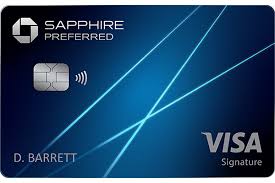This site is part of an affiliate sales network and may earn compensation when a customer clicks on a link, when an application is approved, or when an account is opened. This relationship may impact how and where links appear on this site. This site does not include all financial companies or all available financial offers. Zachary Abel is also a Senior Advisor to Bilt Rewards. Terms apply to American Express benefits and offers. Enrollment may be required for select American Express benefits and offers. Visit americanexpress.com to learn more Opinions, reviews, analyses & recommendations are the author’s alone, and have not been reviewed, endorsed or approved by any of these entities.
Companies + Loyalists could benefit from
Virtual Mattress Running
I’d love to hear your thoughts on this, but why wouldn’t cash strapped hotel chains offer this as an option? It could provide much needed cash flow, retain loyalty, enhance future status, and ease pressure on the small business owners that operate many of our favorite hotels. If you don’t know what I’m talking about I’ll break it down quickly, and why I think Hotels should allow Virtual Mattress Runs.
What’s a Mattress Run?
A mattress run is where you check-in to a hotel with no intention of actually staying at the hotel. This could be for a night, a week, etc, but you’re purely doing it to hit an elite status threshold. You’re still paying the rate, and physically checking into the hotel ( or having someone else on your reservation check-in), but often times these are local hotels that you may check in for a week, turn around and go home.
What’s a virtual mattress run?
This would be where you never physically show up at the hotel. There are many hotels that allow in-app check in without ever going to the front desk. You can even get in and out of your room via Bluetooth.
This is something that hotels do not encourage and often times will result in a no show charge without any credit being given.
Why I think hotels should allow virtual mattress running
Multiple months of travel have been completely shut down, and businesses are looking for ways to not only turn a profit, but simply stay afloat. Who really cares if people are using the program to inflate their elite status if it generates cash flow when no other sources are available. Let’s take a look at a few ways this would help not only the company, but also loyalists looking to boost their status through spend.
As an aside, I think this is something that would need to be clarified prior to check-in so hotels are aware of the virtual check-in and can plan accordingly. If hotels are aware that guests have no intention of checking in, and have agreed to not check-in during booking, hotels can manage flow and still rent rooms, potentially even show temporary over capacity if virtual bookings coincide with peak demand.
Cash Flow for the chain and operator
Virtual Mattress Running would not only generate cash flow for Hyatt ( They get 5% royalty), but more importantly, the small business owner that has franchised the establishment generates cash flow to keep them afloat. Since no one is even checking into the room
Notch up in Elite status
Right now I’m currently Explorist with Hyatt, but if I were allowed to virtually check in and add nights to my status I would seriously consider “virtually” checking into some affordable Hyatt Place/Hyatt Houses in various parts of the country. This would not only generate cash flow for Hyatt ( They get 5% royalty), but more importantly the small business owner that has franchised the establishment generates cash flow to keep them afloat.
Make Virtual Check-in Non Refundable
This seems like a fair concession since you’re effectively buying status via nights and aren’t looking for occupancy anyways. It also means that businesses can rely upon that cashflow
Credit Cards already sell Elite Nights, or grant elite status, but Franchisees miss out on revenue
Marriott has already double its Elite Night credits for personal and business card holders to 30 nights, the World of Hyatt allows you to straight up buy Globalist via spend, and cards like the Amex Platinum and Aspire give Hilton Gold and Diamond status respectively.
If you allow guests to virtually check-in, you’re again throwing cash flow to operators vs the big banks that profit off credit card purchases. However, you could utilize your branded hotel credit cards for the virtual stays to accelerate status
Maybe create Virtual Night Warrants 🙂
Allow the ability to convert, much like you’ll find in finance that gives the virtual night holder the ability to buy at a certain price, but if they want to convert it down the road to a night where they can check-in they could for do so…for a cost, or even discount on the Best Available Rate.
Virtual Nights could keep people employed longer/facilitate SBA loans
If the operator is able to maintain cashflows, but without the obligation to maintain facilities as if customers were occupying them, they may be able to keep the lights on longer and employees on the payroll ( potentially at a furlougehd/reduced rate). Combine this with SBA loans that may be wholly forgivable, and it could help buoy business through this downturn.
Recap
I doubt any of this will actually be put into practice, but much like my article on why airlines should roll back their loyalty programs to 2015, I’m not overly optimistic when it comes to a massive rebound in travel. I think, by en large, people are going to be gun-shy towards travel, crowded spaces, and staying in places that are known to show weird things under a blacklight.
These are extenuating circumstances, and travel geeks like myself, and probably you if you’re reading this, are a group of clientele that would actually make use of programs like this, and will probably be the first to test the waters of travel again once the world gradually opens up again.
Extraordinary policies are something that should be investigated in addition to the extension of status, lower requirements, and more traditional programs chains are already introducing.
Opinions, reviews, analyses & recommendations are the author’s alone, and have not been reviewed, endorsed or approved by any of these entities.



The responses below are not provided or commissioned by the bank advertiser. Responses have not been reviewed, approved, or otherwise endorsed by the bank advertiser. It is not the bank advertiser's responsibility to ensure all posts and/or questions are answered.